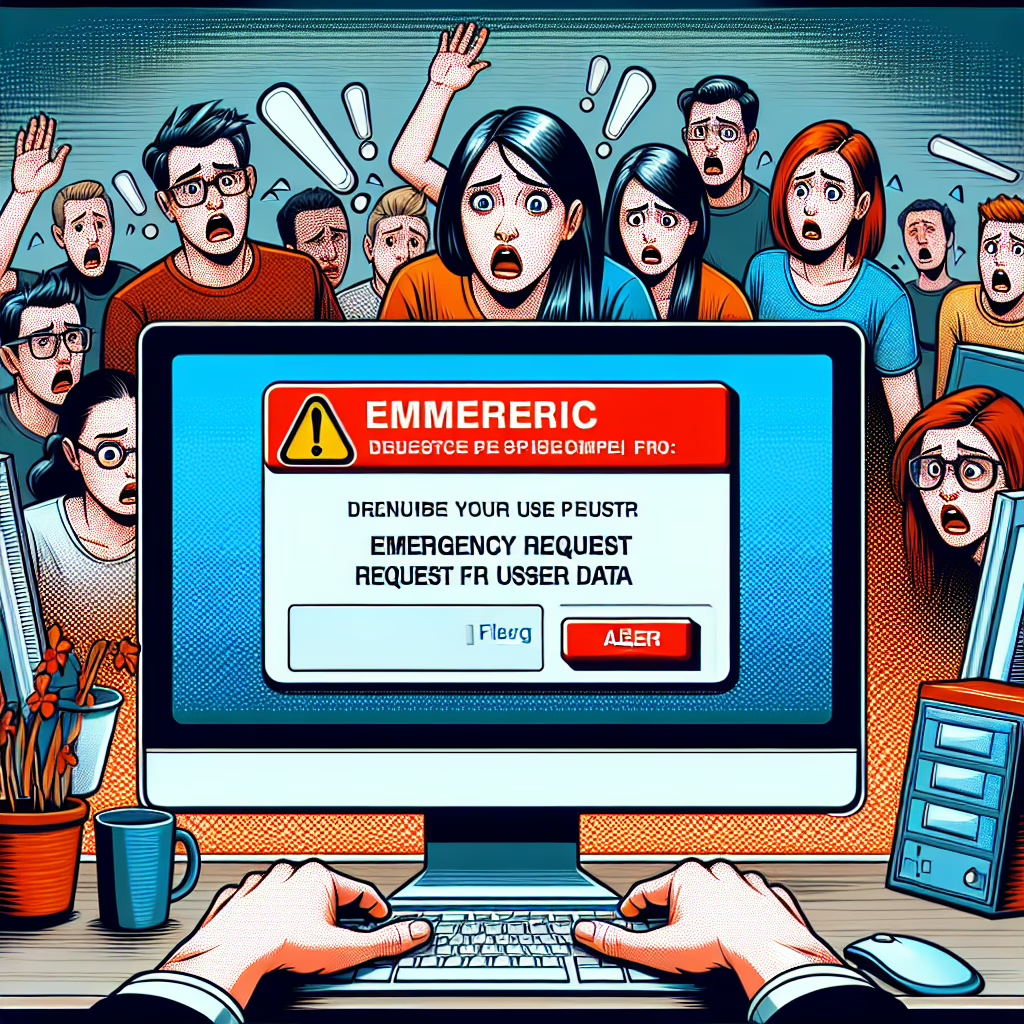In the ever-evolving world of technology, the phrase emergency requests has emerged as a buzzword that sends shivers down the spines of privacy enthusiasts everywhere. If you thought your data was safe from prying eyes, think again! As we step into 2025, a new report reveals how Big Tech companies are increasingly compelled to disclose user data to authorities. So, grab your popcorn; this is going to be a rollercoaster ride through the wild world of privacy and security!
What Are Emergency Requests?
Picture this: a superhero in distress, urgently calling for help. Now replace that superhero with law enforcement agencies and the emergency request with a demand for user data. Emergency requests are formal appeals from law enforcement for access to user information, usually in situations where there’s an immediate risk to life or safety.
These requests can come from various authorities worldwide and often catch Big Tech off guard. Companies like Facebook, Google, and Apple may find themselves in a bind, balancing user privacy with public safety. It’s like being caught between a rock and a hard place—only this rock is a hefty fine for non-compliance, and that hard place is the wrath of users who expect their data to remain confidential.
The Rise of Emergency Requests
According to recent findings in 2025, emergency requests have skyrocketed as governments ramp up their efforts to combat crime and ensure public safety. This surge means that tech giants are faced with increasing pressure to comply with these requests. In fact, many companies have reported that they receive thousands of such requests each year!
What does this mean for you? Well, it turns out that your personal information might be more accessible than you thought. The report indicates that while companies often take steps to protect user data, the sheer volume of emergency requests forces them into tough decisions.
The Balancing Act: Privacy vs. Public Safety
So how do Big Tech companies manage this balancing act? They typically follow a set of guidelines when responding to emergency requests. These guidelines include verifying the legitimacy of the request and ensuring that only necessary data is disclosed. It’s like making sure only the right ingredients go into your secret family recipe—after all, nobody wants a surprise ingredient ruining dinner!
However, the reality remains complex. For instance, some tech companies have faced backlash for complying too readily with authorities. Users expect their platforms to prioritize privacy while also understanding the need for law enforcement access in emergencies. It’s like asking someone to choose between pizza or tacos—both are great but very different!
The Global Perspective on Data Disclosure
As we look beyond borders in 2025, it’s essential to recognize that laws governing emergency requests differ significantly across countries. In some regions, regulations may be strict about what data can be shared and under what circumstances. In others, the rules may be more lenient.
This discrepancy creates a patchwork quilt of policies that tech companies must navigate. Just imagine trying to follow traffic laws in different countries while driving—one wrong turn could land you in hot water!
The User’s Role in Data Privacy
While Big Tech wrestles with the intricacies of emergency requests, users also play a crucial role in safeguarding their data privacy. Here are some tips you can follow:
- Stay Informed: Keep up-to-date with privacy policies from your favorite platforms.
- Use Strong Passwords: A strong password is like having a sturdy lock on your front door.
- Enable Two-Factor Authentication: This extra layer of security is like having a bouncer at your digital party!
Your proactive approach can make it more challenging for unauthorized eyes to peep at your private information—even during emergencies.
The Future: What Lies Ahead?
As we gaze into our crystal ball (or maybe just our smartphone screens), it’s clear that the conversation around emergency requests and user data privacy will only intensify. With technology evolving at breakneck speed and public expectations rising even faster, Big Tech must adapt or risk losing user trust.
It’s likely we’ll see more discussions about creating standardized frameworks for handling emergency requests across borders—a bit like establishing international traffic signals so everyone knows when to stop or go!
Your Thoughts?
In conclusion, while emergency requests pose significant challenges for both Big Tech and users alike, they also spark critical conversations about privacy rights in an increasingly connected world. How do you feel about the balance between privacy and public safety? Do you think tech companies are doing enough to protect our data? Share your thoughts below—we’d love to hear from you!
A special thanks to TechRadar for the original insights that inspired this article!

